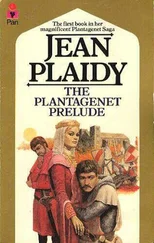Jean Plaidy - The Murder in the Tower - The Story of Frances, Countess of Essex
Здесь есть возможность читать онлайн «Jean Plaidy - The Murder in the Tower - The Story of Frances, Countess of Essex» весь текст электронной книги совершенно бесплатно (целиком полную версию без сокращений). В некоторых случаях можно слушать аудио, скачать через торрент в формате fb2 и присутствует краткое содержание. Жанр: Старинная литература, на русском языке. Описание произведения, (предисловие) а так же отзывы посетителей доступны на портале библиотеки ЛибКат.
- Название:The Murder in the Tower: The Story of Frances, Countess of Essex
- Автор:
- Жанр:
- Год:неизвестен
- ISBN:нет данных
- Рейтинг книги:3 / 5. Голосов: 1
-
Избранное:Добавить в избранное
- Отзывы:
-
Ваша оценка:
- 60
- 1
- 2
- 3
- 4
- 5
The Murder in the Tower: The Story of Frances, Countess of Essex: краткое содержание, описание и аннотация
Предлагаем к чтению аннотацию, описание, краткое содержание или предисловие (зависит от того, что написал сам автор книги «The Murder in the Tower: The Story of Frances, Countess of Essex»). Если вы не нашли необходимую информацию о книге — напишите в комментариях, мы постараемся отыскать её.
The Murder in the Tower: The Story of Frances, Countess of Essex — читать онлайн бесплатно полную книгу (весь текст) целиком
Ниже представлен текст книги, разбитый по страницам. Система сохранения места последней прочитанной страницы, позволяет с удобством читать онлайн бесплатно книгу «The Murder in the Tower: The Story of Frances, Countess of Essex», без необходимости каждый раз заново искать на чём Вы остановились. Поставьте закладку, и сможете в любой момент перейти на страницу, на которой закончили чтение.
Интервал:
Закладка:
Certainly he was coming on in the world, since he was now involved in a plot which concerned people in high places, people who were ready to pay for what was done for them. What would be riches to him, was nothing to them. His fortune was made because when this man Overbury was out of the way some very influential people were going to be grateful to Richard Weston.
He took the little bottle and looked at it. It seemed harmless enough, and all he had to do was to slip it into the broth when he took in the supper.
He had heard a rumor that the Countess was going to divorce her husband and marry Viscount Rochester. Rochester! There was no end to the good that would come to Richard Weston. What if he were offered a post at Court. Why not? Rochester would be grateful to him.
It was quite dazzling when one considered the important people who were in this plot with him—Rochester, the Countess, and the Lieutenant of the Tower Sir Gervase Helwys.
He went to the kitchens for Overbury’s supper and when he emerged set down the bowl and took the bottle from his pocket.
He was studying it, wondering whether to put it in at once, when he heard a step behind him and saw that Sir Gervase Helwys was coming toward him. For a moment he had been startled but was immediately reassured because it was Sir Gervase who had allowed him to come here and he himself had been given his post by the wish of the Countess and her great-uncle; therefore they were fellow conspirators.
Weston said: “Sir, I was wondering whether to put it straight into the broth now, or to wait until the last minute.”
“What is this?” asked Sir Gervase and took the bottle from Weston.
“Well, sir, it’s the mixture that has to be put into the broth.”
Sir Gervase turned pale. He was horrified at what he had discovered. He had been given the post to intercept Overbury’s letters, not to allow him to be poisoned.
He said: “I will take this bottle. Give Sir Thomas Overbury his supper and then come to my apartments immediately.”
Weston was trembling so violently that the broth was slopping over the sides of the basin. Sir Gervase had turned and walked away, while Weston, in a growing panic, took the prisoner his supper, cursing himself for throwing away the greatest opportunity of his life.

Sir Gervase looked at the wretched man and said: “You had better tell me who gave you this bottle.”
Weston’s shifty eyes were panic-stricken. He was not going to incriminate his son.
“It was sent in to me … with instructions to put it into the broth, sir.”
Sir Gervase looked at the cringing man, but he was not thinking of him. He was remembering his interview with the Earl of Northampton when he had been told what was expected of him.
“This man Overbury,” Northampton had said, “because of his position with my lord Rochester, will be aware of certain state secrets which, should they fall into the hands of our enemies, could harm our country. It is for this reason that I wish you to pass on all his correspondence to me.”
Sir Gervase had agreed to do this; he was grateful to his benefactor; it was not every man who was selected by the important Howards to work for them. He knew that it was because of this particular prisoner in the Tower that Waad had been dismissed and he been given the post. He had congratulated himself that he had been chosen because of the delicate nature of the task. He was there to prevent the leakage of state secrets, but murder was another matter.
It was a terrible realization for an ambitious man to make. Waad had been dismissed through the influence of the Howards; what would their reactions be if they knew that he was refusing to work for them?
They wanted to be rid of Overbury. They wanted him to be murdered in the Tower. Sir Gervase was a man who was ready to do a great deal to rise in the world—but murder was something he had never considered.
And here was this man Weston, the tool of the great, standing shivering before him, caught in the act. Monson had recommended him and had hinted that it was the wish of Rochester that the fellow should become Overbury’s jailer. Rochester wanted to assure himself that his one-time friend was comfortable.
Comfortable seemed a sinister word.
And here was Sir Gervase—that ambitious man—who saw the road to glory laying straight ahead of him confronted by a gate on which was written Murder.
He must have time to consider. But there was no time. What he did in the next few minutes could be of the utmost importance to his career.
He heard himself saying: “You know there was poison in that bottle?”
“Why yes, sir,” stammered Weston.
“And you were prepared to administer it!”
“Well, sir, ’twas orders like …”
Orders! The question came to the Lieutenant’s lips: Whose orders? He stopped himself asking it in time. If the man answered that one, what could Sir Gervase do about it?
He must be subtle; he must act with the utmost caution.
“You were about to commit a great sin.” That was it. Words flowed from him. It was not for ordinary men to take life at a whim. What Weston had contemplated doing was an evil thing…. And so on. For five minutes he talked while Weston threw himself on his knees, scarcely listening, seeing himself carried away to a dungeon—one of the noisome underground dungeons where persons of no consequence were sent. This was the end of the good life he had planned for himself—and all because of one stupid mistake.
But to imprison Weston was something Sir Gervase could not do. Had he not been put in his place by Monson at the request of my lord Rochester? Now, there was only one thing a wise man could do in these circumstances, and that was to turn a blind eye on what was going on in the cell of Sir Thomas Overbury.
He would have no part in the murder; neither to assist it nor to prevent it.
He took the bottle of poison and opening his window, threw out the contents.
He turned to Weston. “I see that you are a simple man,” he said, “and I trust my words have had some effect on you. Have I brought you some understanding of the evil nature of your conduct?”
“Oh sir,” cried Weston, “I wish I had died before I had touched the bottle.”
“You have repented. That is good. Go back to your work and we will say nothing of this matter. But I beg you watch your actions in future.”
Watch them in future! So that I do not see what is going on?
Weston’s face was illuminated by his relief. “Oh sir, you are good to me, sir. I swear—”
“It is enough. Remember what I have said.”
“Oh I will, I will, sir.”
Sir Gervase dismissed him and Weston blundered away, bewildered.
After the man had left him, Sir Gervase was thoughtful and very uneasy; it was alarming for an ambitious man to find himself caught up in a plot of murder.

The Commission which had been set up to arrange the divorce were not in agreement.
That eloquent man, George Abbot, Archbishop of Canterbury, was the main stumbling block. He had interviewed the Earl of Essex who was reserved yet determined not to accept the stigma of impotence, although he did agree that as far as his wife was concerned he had no desire. The Archbishop had come to the conclusion that the Earl was by no means impotent but as eager as his wife to have the marriage ended.
He put his view before the Commission explaining that this was a serious matter and they must not allow themselves to be guided by the fact that noble people beloved of the King were eager to see a certain solution. They had to give the right judgment, no matter whom they offended.
Читать дальшеИнтервал:
Закладка:
Похожие книги на «The Murder in the Tower: The Story of Frances, Countess of Essex»
Представляем Вашему вниманию похожие книги на «The Murder in the Tower: The Story of Frances, Countess of Essex» списком для выбора. Мы отобрали схожую по названию и смыслу литературу в надежде предоставить читателям больше вариантов отыскать новые, интересные, ещё непрочитанные произведения.
Обсуждение, отзывы о книге «The Murder in the Tower: The Story of Frances, Countess of Essex» и просто собственные мнения читателей. Оставьте ваши комментарии, напишите, что Вы думаете о произведении, его смысле или главных героях. Укажите что конкретно понравилось, а что нет, и почему Вы так считаете.











